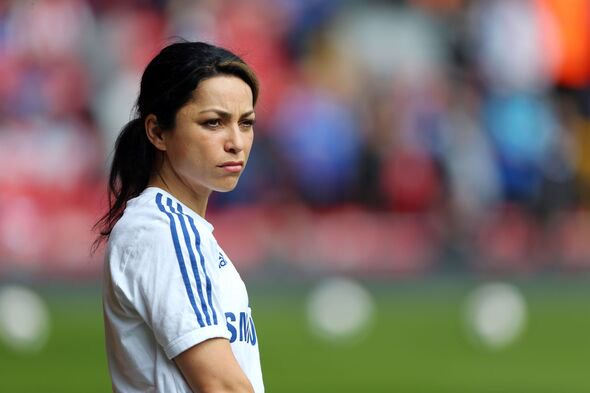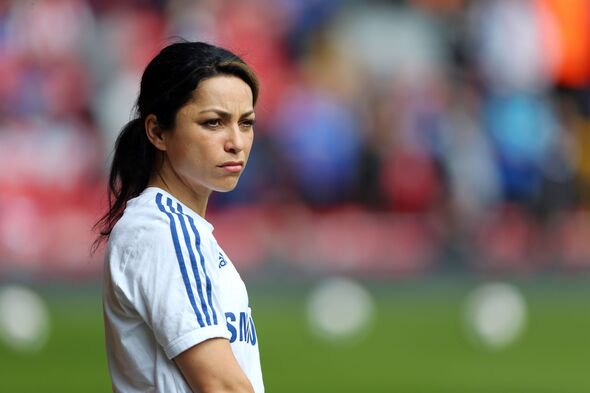
It was the incident that shattered the illusion of unity at Chelsea – a touchline dispute that escalated into one of the most notorious fall-outs in Premier League history. Eva Carneiro, the club’s esteemed team doctor, had dashed onto the pitch to attend to an injured Eden Hazard during a match in 2015, only to be met with Jose Mourinho’s boiling rage.
What should have been a standard act of medical duty instead sparked a verbal feud, a poisonous exit, and a bitter legal fight that would ultimately reshape Carneiro’s career – and stain Mourinho’s reputation. However, it was Carneiro who had the last laugh.
As Chelsea’s season fell apart, Mourinho’s once-radiant aura dimmed, and his authority collapsed in the ensuing months. Here, we revisit one of Stamford Bridge’s most peculiar internal disputes in recent times, dissecting what occurred, its aftermath, and the current state of affairs.
Carneiro joined Chelsea in 2009 after brief stints with both West Ham and the England women’s national team. The Gibraltar native, who obtained a medical degree from the University of Nottingham, was promoted to first team duties in 2011 when Andre Villas-Boas was manager, and stayed in the role under successors Roberto Di Matteo, Rafael Benitez and Mourinho.
For two years, her working relationship with ‘The Special One’ was positive – until the 2015/16 season opener changed everything. Defending champions Chelsea faced Swansea at Stamford Bridge and hit a snag when Thibaut Courtois saw red in the second half.
Complications escalated shortly after when Hazard suffered what, initially, seemed like an injury, leading Carneiro and fellow physio Jon Fearn to dash onto the pitch, much to the fury of Mourinho who believed that Hazard was fine. The team was temporarily reduced to nine men while the Belgian received treatment off-field, prompting Mourinho to brand the actions of his staff “impulsive and naive”.
After the game, the Portuguese coach vented his frustration. “I wasn’t happy because even if you are a medical doctor or secretary on the bench, you have to understand the game. You had to know you have one player less,” he fumed.
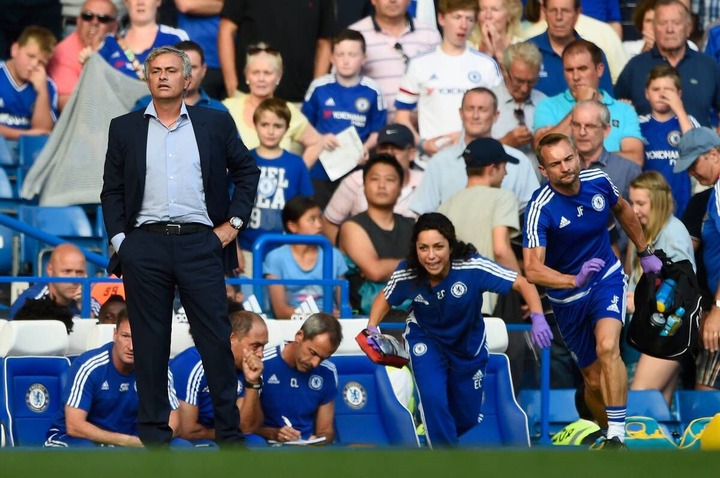
“So if you go to the pitch to assist a player you must be sure the player has a serious problem. I was sure Eden [Hazard] didn’t have a serious problem. He had a knock and was very, very tired. My medical department [were] naive. They left me at a counter-attack with two players less.”
Later, allegations surfaced that Mourinho had hurled the Portuguese insult “filha da puta” at Carneiro, which translates as “daughter of a b****/w****”. Mourinho disputed this, asserting that his actual words were “filho da puta” [son of a b****/w****], likening the term to saying ‘f*** off’.
“Filho da puta is a phrase I often use, all of the players know it,” he clarified. “There is no sexist connotation in the use of the phrase – it is just like saying ‘f*** off’.”
After enlisting the expertise of a Portuguese linguist, the FA cleared Mourinho of making discriminatory comments towards Carneiro. Despite this vindication, claims of sexism remained, leading to an irreparable rift between Mourinho and Carneiro, which ultimately resulted in her being demoted from first-team responsibilities. Carneiro decided to resign shortly after.
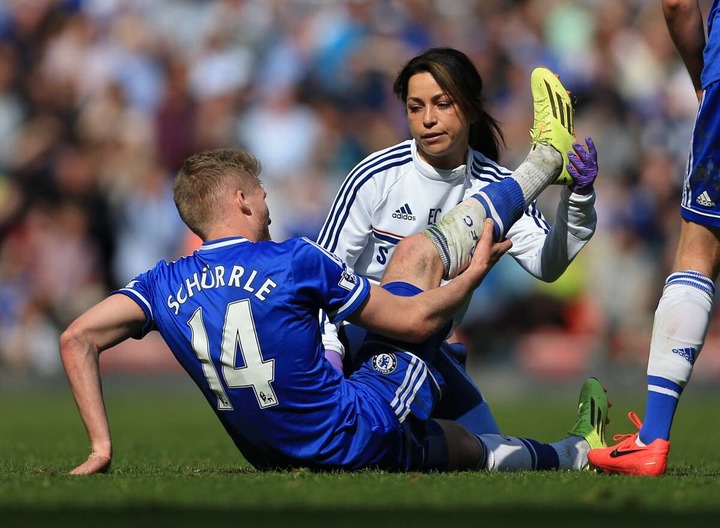
In October 2015, mere days after she left, Carneiro’s legal representatives issued a constructive dismissal claim against Chelsea. On top of this, Carneiro filed claims for sex discrimination and harassment directly against Mourinho.
Private talks had been ongoing since early 2016, by which point Mourinho had been sacked by Chelsea following the team’s dismal start to the season. The club issued an unreserved apology for the turmoil endured by Carneiro and her family, noting in a release: “We wish to place on record that in running onto the pitch Dr Carneiro was following both the rules of the game and fulfilling her responsibility to the players as a doctor, putting their safety first.”
An employment tribunal learned that she had rejected a £1.2million settlement proposal, and insisted upon returning only if offered a 40 per cent wage hike, a year’s salary as severance, involvement in a bonus plan “to properly reward me for my contribution to the club’s success”, alongside a hefty sum for emotional suffering.
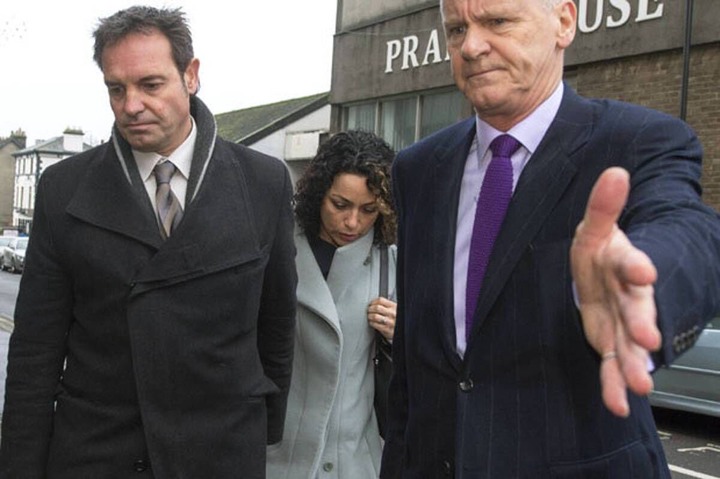
In the eleventh hour before her scheduled testimony, Carneiro settled with Chelsea. According to the Daily Mail, her deal included a £5m payout and dropped her case against Mourinho, though the details of the agreement have never been officially disclosed.
In a statement shortly after, Carneiro said: “I am relieved that today we have been able to conclude this tribunal case. It has been an extremely difficult and distressing time for me and my family and I now look forward to moving forward with my life. My priority has always been the health and safety of the players and fulfilling my duty of care as a doctor.”
Since leaving Chelsea, Carneiro, now 51, has worked in a private practice with the Sports Medical Group on Harley Street in London and served as a consultant for Aspetar Orthopaedic and Sports Medicine Hospital in Qatar during the lead-up to the 2022 World Cup.
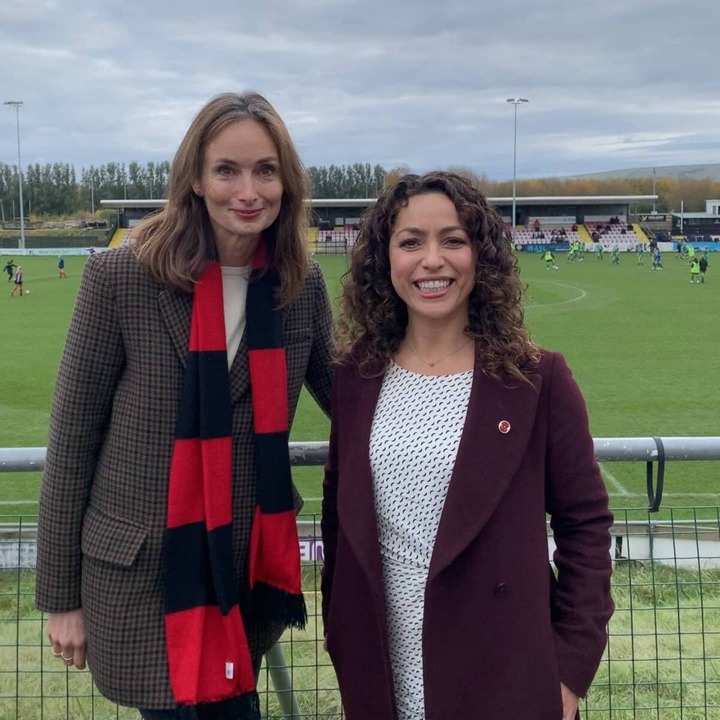
In 2024, she ventured into the realm of football club ownership by investing in the Isthmian League Premier Division’s Lewes FC. She joins their ranks of prominent investors like tennis star Andy Murray’s mother Judy Murray and British singer-songwriter Kate Nash.
Carneiro acknowledged that bouncing back after her Chelsea ordeal wasn’t straightforward, impacting her career significantly. “It’s impossible to go through something that I went through for the best part of a year of my life and not be changed by it,” she conceded in a talkSPORT interview in 2020. “But it hasn’t put me off at all.
“It’s fair to say I needed time off, I needed to enjoy my job again and be a doctor again without the complications of being in the limelight. I was in every paper in every country for a really long time and I wasn’t at all comfortable with that.
“Certain individuals in football wanted to treat me like I did something wrong when it was clear I was only doing my job. In football, whether it’s racism, child abuse, athlete safeguarding and respect for the medical treatment – a change of culture is needed to change the things which are ugly about it.”
